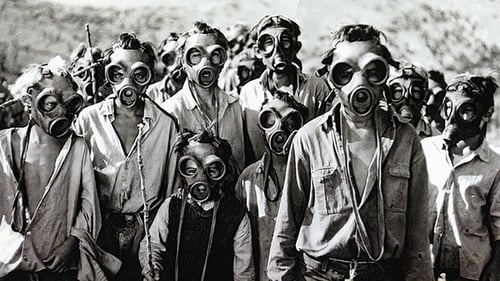
Himself
Through the conversation with Yugoslav film authors and excerpts from their films, this documentary film tells a story of a film phenomenon and censorship, and its focus is, in fact, a painful epoch of Yugoslav film called “a Black Wave”, which was the most important and artistically strongest period of Yugoslav film industry, created in the sixties and buried in the early seventies by means of ideological and political decisions. The film tells a great “thriller” story of the ideological madness which characterised the totalitarian psychology having left multiple consequences felt up to our very days. It stresses similarities between totalitarian regimes defending their taboos on the example of the persecution of the most important Yugoslav film authors. Those film authors have, however, made world careers and inspired many later authors. The film is the beginning of a debt pay-off to the most significant Yugoslav film authors.

Himself
A documentary about the history of Yugoslavian Film Festival in Pula and ex-Yu cinema in general. Many legends of ex-Yu cinema were interviewed here.

Writer
Silent Gunpowder (Serbo-Croatian: Gluvi barut) is a Yugoslavian war film Based on a novel by Branko Ćopić and set during World War II, the film tells the story of a Serbian village in the mountains of Bosnia and its villagers who found themselves divided along two opposing ideological lines, represented by the Chetniks and the Partisans. These two opposing sides are personified in the Partisan commander Španac and a former Royal Army officer Radekić. Španac sees Radekić as the cause of villagers' resistance to the new, Communist, ideology and so the main plot axis is the conflict between them. At the 1990 Pula Film Festival, the film won the Big Golden Arena for Best Film, as well as the awards for Best Actor in a Leading Role (Branislav Lečić), Best Film Score (Goran Bregović). The film was also shown at the 1991 Moscow International Film Festival, where both Branislav Lečić and Mustafa Nadarević won the Silver St. George Award for their performances.

Director
Silent Gunpowder (Serbo-Croatian: Gluvi barut) is a Yugoslavian war film Based on a novel by Branko Ćopić and set during World War II, the film tells the story of a Serbian village in the mountains of Bosnia and its villagers who found themselves divided along two opposing ideological lines, represented by the Chetniks and the Partisans. These two opposing sides are personified in the Partisan commander Španac and a former Royal Army officer Radekić. Španac sees Radekić as the cause of villagers' resistance to the new, Communist, ideology and so the main plot axis is the conflict between them. At the 1990 Pula Film Festival, the film won the Big Golden Arena for Best Film, as well as the awards for Best Actor in a Leading Role (Branislav Lečić), Best Film Score (Goran Bregović). The film was also shown at the 1991 Moscow International Film Festival, where both Branislav Lečić and Mustafa Nadarević won the Silver St. George Award for their performances.

Writer
A village fella tries to make it big in the city.

Director
A village fella tries to make it big in the city.

Writer
A coal miner works harder than everything else to make his country proud.

Director
A coal miner works harder than everything else to make his country proud.

Writer
After WW2, a group of partisans comes to a bourgeois family in order to teach them singing and declamation of new songs. The family soon forgets their old customs and principles.

Director
After WW2, a group of partisans comes to a bourgeois family in order to teach them singing and declamation of new songs. The family soon forgets their old customs and principles.

Director
After the end of WW2 a blonde boy arrives at an orphanage made for the children of Partizans or people being killed in the war. The headmaster knows that the boy's parents were Nazis but conceals that fact from others, fearing violence by vengeful children. He invents the boy's life story, but the other children get suspicious.

Second Unit Cinematographer
An-ex convict nicknamed Al Capone, who spent six years in jail, tries to adapt in new environment. Members of the two rival gangs try to engage him in their new ventures, but he wants to make a new start with the girl he loves. At the same time, a young criminal who shares the same nickname replaces him in these actions.

Assistant Director
A married woman is living an unexcited life, until she meets a man who is able to put a smile on her face again, at least for a couple of days.

Director
The camera enters one of the Yugoslav prisons and records the life of prisoners. The dominating idea, above all, is that a man without freedom is a man without a face.

Writer
The camera enters one of the Yugoslav prisons and records the life of prisoners. The dominating idea, above all, is that a man without freedom is a man without a face.









